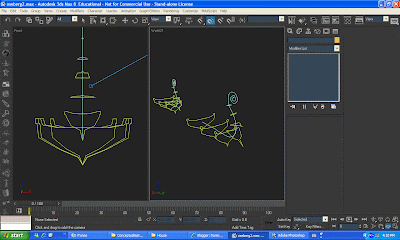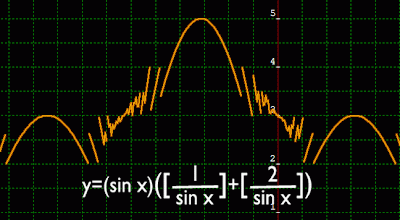Inorganic Chemistry
A/P Huynh has taken to frequently showing us videos in order to take a break from talking and go and cough a bit, he says. He also joked once that he was chronically depressed, which wasn't very funny and slightly worrying. The class has developed an addiction to (fake) alkaline metal explosions:
Mid-terms featured a quiz on scientists' names, rather unsurprisingly on retrospect.
Organic Chemistry
I have given up printing notes, because I have the textbook, which has almost everything the notes have and much more, and increases my tolerance towards heavy textbooks.
Labwork featured each of us being given a mixture of two unknown substances for to separate, purify and crystallise. The luckier ones among us got yellow crystals, or crystals with some kind of form. For me, fortunately, I got the long needly crystals (salicylic acid) and the big flaky ones (acetanilide).
The professor in charge of our lab sessions was Dr. Ship, who had the naggy, secondary-school teacher vibes.
Thermodynamics
Yesterday I was finally convinced that numbers (as numerical answers) in Thermodynamics are the last things one should worry about, far behind understanding the ideas behind what has been taught.
Admittedly, understanding the workings of thermodynamics has also been challenging. To illustrate, the school printer at S10 has helpfully screwed up all the notes printing at the maths.

In other news, we have finished the most awesome lab of the semester, the Tin-Zinc phase diagram. Be it due to oxidation or impurities, melting the mixtures of the two metals produced an amazing and unpredictable array of colours:

Structure of Materials
It was too easy to get a full mark this mid-terms, so the marker had the pleasure of penalising us on the most unimportant slights.
Picked up a textbook in Science Library the other day about the Structure of Materials. None of the content was at all familiar. For example, the first topic to be featured was the rotational symmetry of crystals. When I did crystal structures in the software CrystalKitX, it just so happened that one has to know them in order to make even a SC or FCC, etc.
Anyway,
 !!!!!!!!!!!!!!!!!
!!!!!!!!!!!!!!!!!In Other News
I've signed up for a UROP project. The title is
Modelling and Simulation of structures and TEM images of crystals
which is why I'm doing stuff on CrystalKitX all these days.
SEP application closes today. My 5 choices:
1. École Polytechnique Fédérale de Lausanne (EPFL)
2. Eidgenössische Technische Hochschule Zürich (ETH Zürich)
3. Uppsala Universitet
4. Institut Polytechnique de Grenoble
5. University of British Columbia
Fingers are crossed for Francoprovençal small-talk and cross-border grocery shopping




































